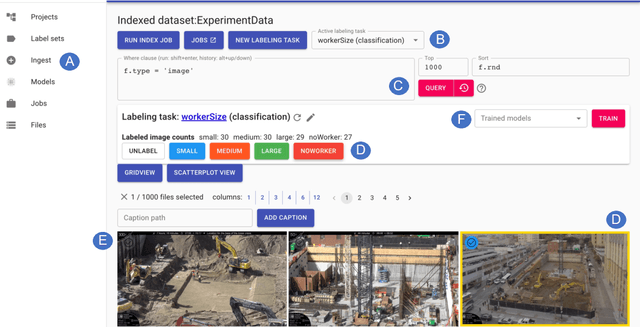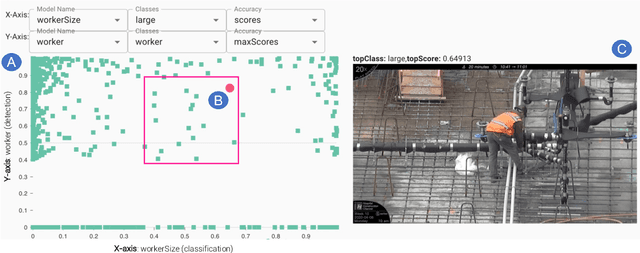Where does a computer vision model make mistakes? Using interactive visualizations to find where and how CV models can improve
Paper and Code
May 19, 2023


Creating Computer Vision (CV) models remains a complex and taxing practice for end-users to build, inspect, and improve these models. Interactive ML perspectives have helped address some of these issues by considering a teacher-in-the-loop where planning, teaching, and evaluating tasks take place. To improve the experience of end-users with various levels of ML expertise, we designed and evaluated two interactive visualizations in the context of Sprite, a system for creating CV classification and detection models for images originating from videos. We study how these visualizations, as part of the machine teaching loop, help users identify (evaluate) and select (plan) images where a model is struggling and improve the model being trained. We found that users who had used the visualizations found more images across a wider set of potential types of model errors, as well as in assessing and contrasting the prediction behavior of one or more models, thus reducing the potential effort required to improve a model.
 Add to Chrome
Add to Chrome Add to Firefox
Add to Firefox Add to Edge
Add to Edge